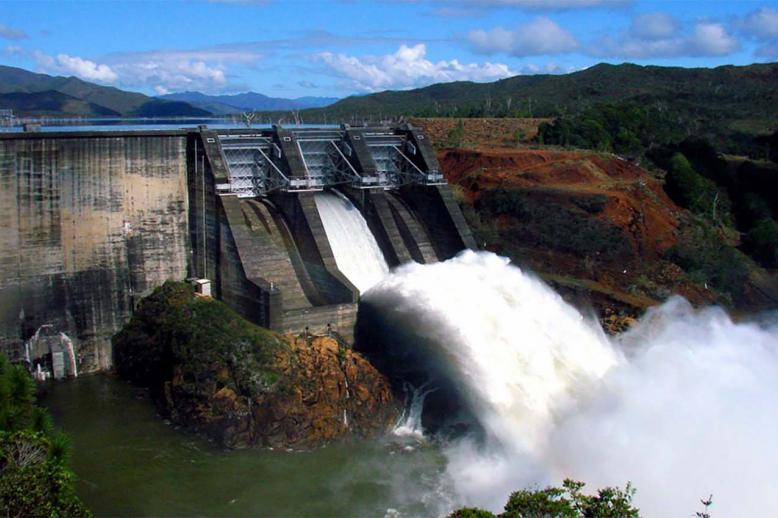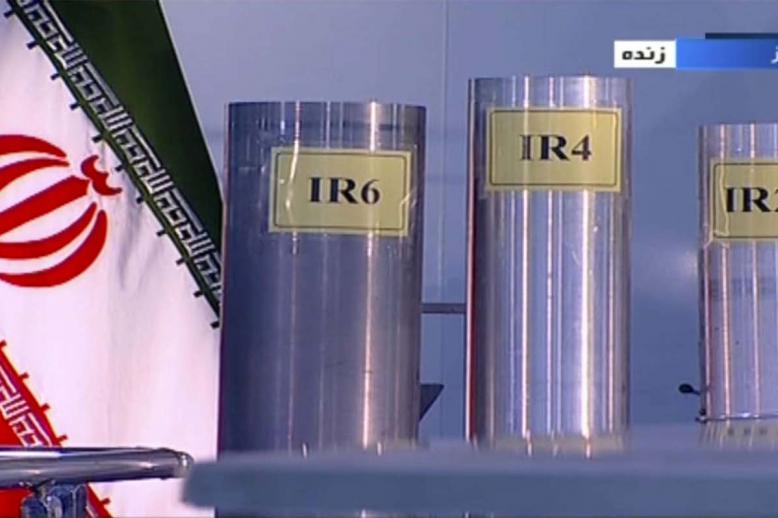Iran’s wrong bet on US-Saudi rupture
Following news of Saudi journalist Jamal Khashoggi’s disappearance on October 2, Iran trod carefully, refraining from issuing official comments on the issue. This changed October 22, when the head of Iran’s judiciary, Sadegh Larijani, broke the country’s silence, publicly condemning Saudi officials’ suspected role in the journalist’s killing.
Saudi Arabia, Larijani said, had first “set out to cover up this crime with the help of the West and recently, when it was forced to acknowledge it, to whitewash its corrupt system, [claiming] that some rogue elements committed this crime.”
Two days later, Iranian President Hassan Rohani added fuel to the fire, saying it would have been impossible for the kingdom to have carried out such a “heinous” crime without the support of the United States, a close Riyadh ally.
“No one would imagine that in today’s world and in this century, we would witness such an organised murder, with an apparatus organising such a heinous killing,” Rohani said at a cabinet meeting referring to the Khashoggi case.
Iran’s initial restraint throughout the Khashoggi affair rested on a delusive hope that Washington might end up recalibrating its relations with Riyadh. However, despite all the rumours and speculation throughout the Khashoggi case, Saudi Arabia’s relationship with the United States, which has survived worst crises, such as the oil embargo of 1973, is and will remain crucial for both countries.
Although the fallout over the Khashoggi affair prompted US Treasury Secretary Steven Mnuchin to drop out of Saudi Arabia’s investment conference, the US official still travelled to Riyadh to meet with Saudi Crown Prince Mohammed bin Salman bin Abdulaziz, an indication that US President Donald Trump was attempting to maintain strong ties with the kingdom.
If Mnuchin’s meeting with the crown prince proved anything, it was that Saudi Arabia’s strategic and historic partnership with the United States is here to stay and that Riyadh will retain its position of influence in the region.
If the above is an indicator, Iran’s belated condemnation of Saudi Arabia is likely to backfire, giving rise to a stronger cooperation between Riyadh and its American allies and a formation of a regional Sunni front in defence of the kingdom.
Indeed, Iran’s change seems to go against recommendations by Iranian experts and commentators, who said Tehran would benefit most by staying out of the crisis.
In a statement to the semi-official news agency ISNA, Tehran-based analyst Ahmad Fateminejad suggested that Iran had benefited from the Saudi crisis by doing and saying nothing.
“Just the fact that international public opinion has in the past 20 days focused on the [Khashoggi case] is positive [for Tehran], as it decreases the psychological [pressure] on Iran,” Fateminejad was quoted as saying.
Fateminejad was right but Iranian leaders did not listen, instead drawing attention to their country’s poor human rights record, which includes ill-treatment of journalists and dissidents.
In the 1980s and late 1990s, extrajudicial killings of Iranian dissidents and intellectuals reportedly authorised by senior officials were blamed on “rogue intelligence agents.”
Among those assassinated were Shahriar Shafiq, the shah’s nephew; General Gholam-Ali Oveissi; former Prime Minister Shapour Bakhtiar; regime critic Reza Mazlouman in France; and Kazem Rajavi, representative of the People’s Mujahideen of Iran to the United Nations, in Switzerland; as well as Iranian Kurdish opposition leaders in Austria and Germany.
Iran stopped carrying out such assassinations in the 1990s when the regime attempted to gain international legitimacy but there are now “signs that Iran is turning the clock back to the bad old days,” said Ali Alfoneh, a visiting scholar at the Arab Gulf States Institute in Washington and columnist for The Arab Weekly.
Alfoneh pointed to a number of incidents as evidence, including the expulsion of two Iranian Embassy staff members from the Netherlands in July over murder allegations, French accusations that Iranian intelligence had plotted a bomb attack on a gathering of the National Council of Resistance of Iran in Paris and Danish fears that Iran is planning to assassinate or kidnap Yaqoub al-Tostari, a spokesman of the separatist Arab Struggle Movement for the Liberation of Ahwaz.
On top of the transparent hypocrisy of Iran’s criticism of Saudi Arabia, it also lost a key chance to remedy its relations with Riyadh.
Such a rapprochement would have been a lifeline for Iran, which is reeling from mounting US sanctions on its oil sector and growing pressure to withdraw its forces from southern Syria and end its interference in Iraqi affairs.
Mending relations with Riyadh could have also helped Iran secure a role for its Houthi allies in Yemen, where it has failed to make expected gains.
But, as ever, the Islamic Republic could not resist engaging in fiery rhetoric, destroying all chances of improving ties with other regional powers in the Middle East.
Iman Zayat is the Managing Editor of The Arab Weekly.
This article was originally published in The Arab Weekly.







